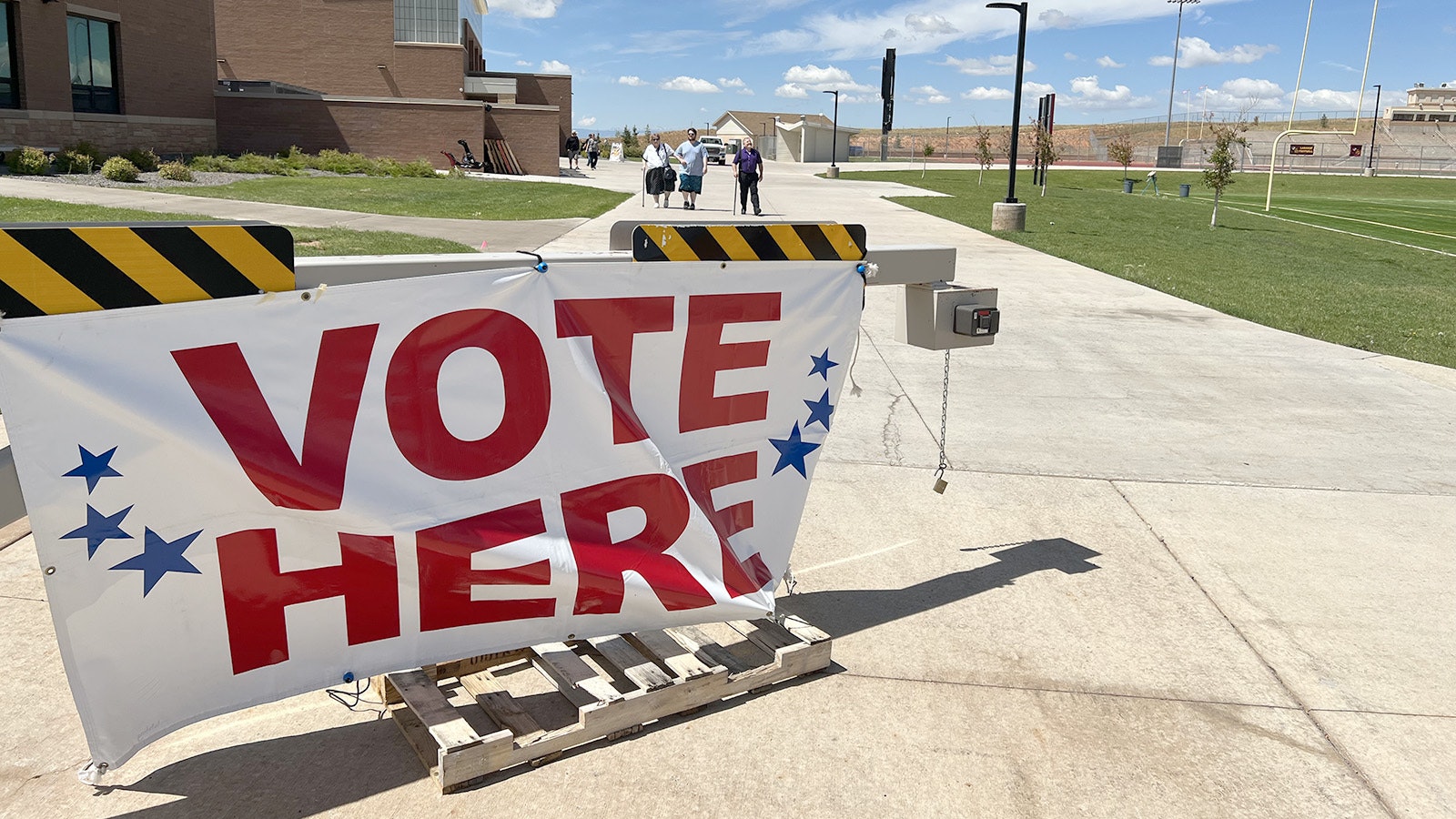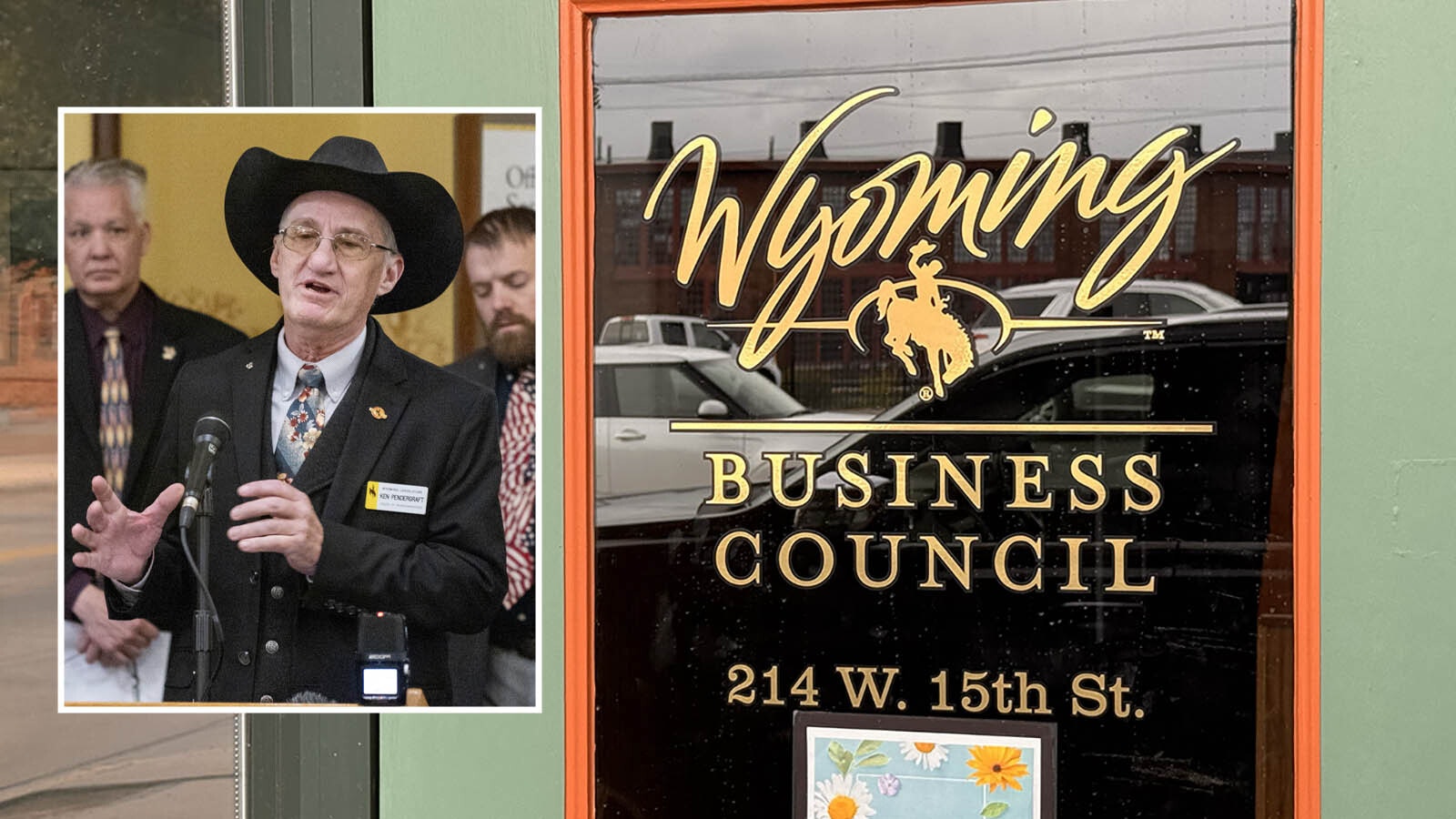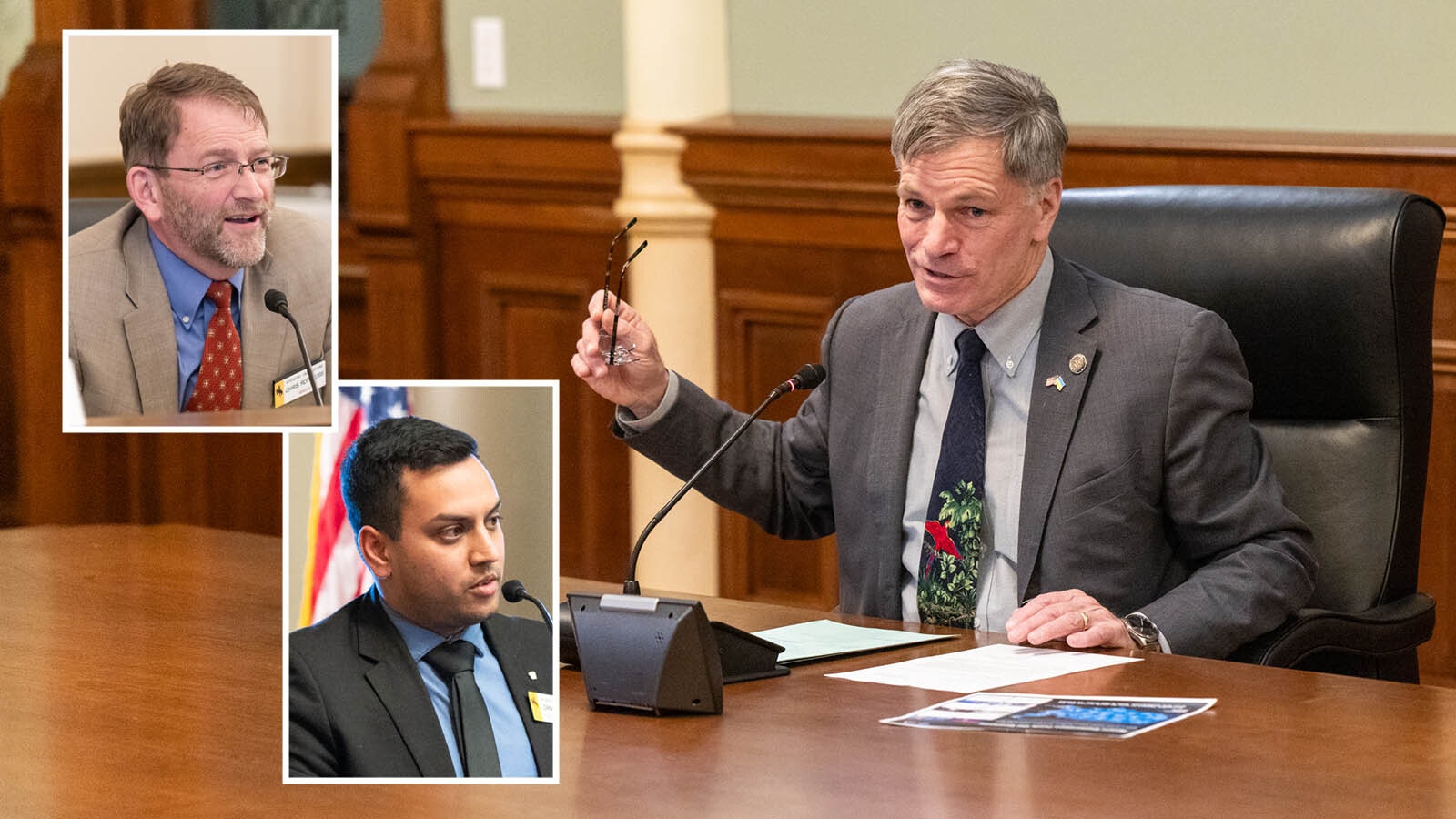A bill that would eliminate crossover voting in Wyoming has only one major hurdle remaining before hitting the governor’s desk to potentially be singed into law.
The State Senate Revenue Committee on Thursday passed House Bill 103, which would prevent people from changing political party affiliations after the filing period for declaring political candidacy opens in Wyoming.
The bill was revived Tuesday after being defeated in the Senate Corporations, Elections and Political Subdivisions Committee. State Sen. Larry Hicks, R-Baggs, drew on a rarely used rule to bring the bill back with a majority vote of support from the Senate body.
Hicks also was successful in having the resurrected bill assigned to the more conservative Revenue Committee, which passed it on a 4-1 vote.
Pure And Sacred
Rep. Jeremy Haroldson, R-Wheatland, sponsor of HB 103, said Republican primaries in recent years have been “watered down” with voters who have left their previous party affiliation to vote in Republican primaries.
Many supporters of crossover voting bills have complained about their party’s primaries being tampered with by “illegitimate” voters that should have no place in a Republican primary.
Some Wyoming Republican Party leaders have demanded similar purity tests of party members, telling those who don’t agree with at least 80% of the party’s platforms, that they will not be considered real Republicans.
“The Republican platform is what defines Wyoming Republicans,” said Wyoming GOP National Committeewoman Nina Webber. “This platform is what being a Republican is all about.”
Secretary of State Chuck Gray offered similar remarks, saying he believes crossover voting undermines “the sanctity” of the primary process.
Current Wyoming law allows people to change their party affiliation on the day of the election.
Gray said allowing people to change their party affiliation up to the day of the primary election “dilutes our primary system” and “creates incentives for people who do not share a party’s values and prevents voters of that party from selecting their party’s platform.”
An audio recording was played during Thursday’s meeting of a phone advertisement made on behalf of Gov. Mark Gordon during his 2018 gubernatorial campaign, urging voters to switch their party affiliation to support him because he was not a candidate aligned with former President Donald Trump.
The Wyoming Secretary of State’s office determined although crossover voting occurred in this election, it did not occur at a level high enough to affect the final outcome of the race.
Deadline Effect
HB 103 would mark the deadline for voters to change party affiliation as the day before candidates are allowed to officially file to get in a race.
The highly contentious 2022 Republican primary race between U.S. Rep. Harriet Hageman and former congresswoman Liz Cheney is one of the most blatant examples of crossover voting occurring in Wyoming. There was a significant number of voters who only voted in this race.
Both Hageman and Cheney announced their intention to run long before the opening of the filing deadline. Gordon announced he would run for governor in 2018 about two months before the opening of the filing deadline.
‘Careful What You Wish For’
Crook County Attorney Joseph Baron, a Democrat, warned legislators that passing a crossover voting bill may have unintended consequences, such as permanently crossed over voters. He believes the trend has already begun, with far fewer Democrats in his county than when he first moved there in 1990.
“Be careful what you wish for because you might get it,” Baron cautioned. “People will crossover and they’re going to become a part of the Republican Party and they’re going to become a part where we become a one-party state, and that’s a fact because it’s already occurred.”
Sen. Bo Biteman, R-Ranchester then asked Baron if he would have an issue with a Republican crossing over to run in his Democratic primary, which could lead to a group of Republicans voters crossing over to vote for that candidate.
Baron said he has had only one contested election during his 33 years in office.
“If someone wants to run for the office they can do it,” he said. Baron’s response drew a burst of laughter from Rep. Jeanette Ward, R-Casper, who was watching from the audience.
Sen. Stephan Pappas, R-Cheyenne, was the only member of the committee to vote against the bill. Pappas has more Democrats in his district than most others in the state and said it’s his job to represent these constituents as well even though he is a Republican. He said he doesn’t understand the fear of crossover voting felt by many members of his party.
“This will drive more and more people to become Republicans and not come back to the Democratic Party, which if that’s what the Republican Party wants is a bunch of Democrats in their party,” Pappas said. “We will be bringing this to a one-party state … I don’t know that that’s a very healthy situation.”
Hopes It ‘Will Challenge Parties’
Haroldson told Cowboy State Daily that the bill may cause crossover voters to permanently register with the Republican Party and permanently influence its elections, but he still believes the legislation would be an improvement from the status quo.
“I don’t believe it’s probably going to overwhelm it, but I believe it’s definitely something that we’ll have to pay attention to,” he said.
Haroldson also mentioned how as recently as 12 years ago Wyoming had a Democratic governor and frequently had Democrats in statewide office positions in years’ past.
“I’m hoping this will challenge parties to step up and to select candidates and give people opportunities and then that way they can send forth solid candidates,” he said.
Haroldson also said HB 103 will have no effect on new voter registrations.
The bill will next head to the Senate where it may face a more challenging road. Although Hicks’ motion to revive the bill passed by seven votes, the decision to move the bill to the Revenue Committee passed by two.





